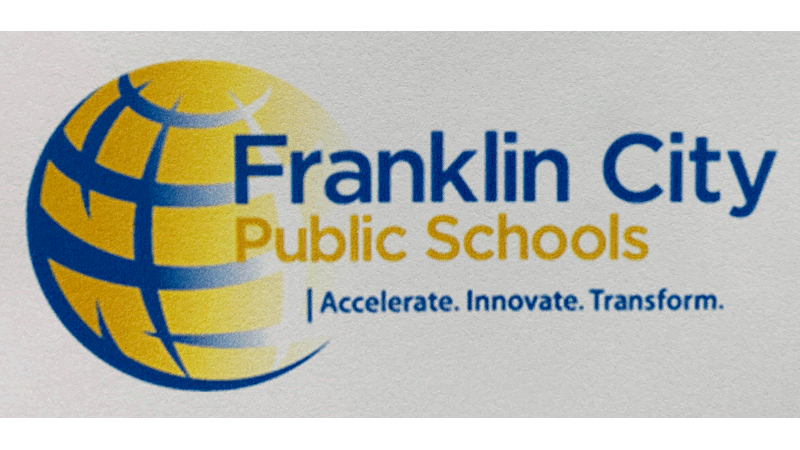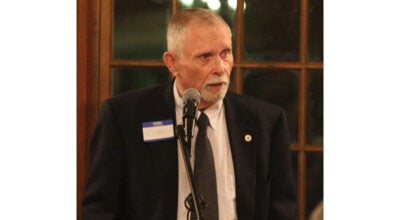QZAB passed after heated debate
Published 8:39 pm Friday, November 21, 2014
FRANKLIN
With a little bit of heartache, the Franklin City Council voted to approve the Qualified Zone Academy Bond request of the school superintendent. What they agreed to do was take on $1.8 million in debt to be paid back over the next 10 years, should the Franklin City Public School Division get final approval from the Virginia Department of Education.
Thanks to it being a QZAB loan, the funds, to be distributed to the schools, are interest free. The financial advisor of both systems, Davenport & Company, had budgeted for up to a 2.5 percent “interest coupon” to entice loaning agencies beyond the QZAB bonds, which offer tax credits in the wake of interest. However, through the Virginia Public School Authority, the city was able to secure the loan without an “interest coupon.”
Kyle Laux, a consultant with Davenport & Company, said financially the city was in a situation to take on the debt.
“You can schedule it to ramp up the payments more as you go along, such that over time, we allow the general fund budget to build it in, instead of it all hitting in the first year,” he said. “One of the nice things about this is that you are not building any interest, so you are not costing yourself dollars in terms of total cost of financing.
“Another nice advantage you have is that when we get to for year 2020, we can move some of this debt around as needed. We’ve got that built in as kind of a safety valve per say in terms of cash flow in the future.”
Even if interest rates do go up, Laux said refinancing could still be an advantage for the city if the loans cannot be covered by new revenue or reorganizing current revenue.
Should the city not chose to refinance or get revenue from elsewhere, is that taxes would have to go up by 6.25 cents spread over a 6-year period.
“Hopefully, by then we will have grown,” City Manager Randy Martin said. “But we don’t control the whole economy. You can’t rely on growth for things like this. But as we build our reserves, that area already up significantly, if we needed to float for a couple of years to avoid a bump up in tax rate, then this is an eligible use of our reserves.”
Ward 6’s Frank Rabil said he was conflicted about
QZAB, particularly when it comes to two-thirds of the loan going toward technology.
“I see technology as an enabler, not something that defines what processes are going to be,” Rabil said, adding that he’s also uncomfortable that he hasn’t seen a technology strategy in terms of a written plan for implementation from the system.
To add to that, Ward 2’s Benny Burgess said that when the schools submitted budget requests last year, that technology wasn’t one of the big items on it.
“We’ve heard that salaries are low for teachers, and there will probably be additional salary increase requests,” he said. “The school board really makes sure that this is the priority that they want us to fund. Once we do it, and they come back later for other things — there’s a limit on what we can do.”
“We are damned if we do, and damned if we don’t from a support standpoint,” Rabil added.
Ward 3’s Greg McLemore also said it was a tough decision.
“I am just scared, wondering, are we just throwing money at the problem — the school system — in hopes that it is going to change the situation,” he asked. “If we put this $1.8 million in there, and 3 years from now we are still looking in on a school system that is not one of the top 15 to 20 in Virginia. If we put in the money that is necessary, we should get the necessary results.”
In this day and age, Superintendent Willie Bell said, to pull off quality instruction, you need a device. Many textbook companies chose to distribute via a tablet app rather than a printed book, he added.
“We are in competition right now, in our region, with 400,000 students,” Bell said. “Most divisions have Promethean Boards in every classroom. They have a lot of these things at their fingertips. Our children, in this city, need technology. We are behind.
“If we want to move to the next level, this is where it starts.”
School Board Chair Edna King agreed that technology was a key component missing in FCPS. The school board was not aware of just how bad the need was until the Virginia Board of Education came to Franklin back in May.
“Mr. Braunlich told me he saw things that he was greatly concerned about,” King said of Christian Braunlich, the president of VBOE. “The mode of instruction has just changed. You cannot expect our children to compete; to succeed; to perform; to do research; if they don’t have technology.”
McLemore and Vice Mayor Barry Cheatham wondered why the divisions was ordering Surface Pro units for 300 children grades 3-5, instead of perhaps getting something that may be cheaper and incorporate technology in the hands of all 1,100 students in the system
“I would think there would be something out there that we would be able to provide all of our students,” McLemore said. “I can’t do the math right now, but I could see us giving everyone in the school access to an iPad or something better.”
Bell said the Surface would give them more bang for their buck, as it can run higher-end learning software.
With only 300 children getting them, Cheatham also worried that this was “just the tip of the iceberg,” meaning that Bell would be back in 2-3 years asking for additional money for technology outside of the school’s normal operating budget.
Speaking of future QZAB funding, Bell said Franklin may not qualify for another one.
In terms of asking for money for technology, he said the system would do its best to utilize the normal operating budget and be sound stewards of the money given. However, he couldn’t predict 3-4 years down the road at this point.
“Right now the plan is for grades 3-5,” Bell said. “For grades 6-12, we’ll look at the VPSA, at grants and other things that come from the state. But if we do need additional funds, I may come back and ask for money, I don’t know.”
Burgess said he didn’t think it was too much to ask to have a plan of how the schools were going to implement technology throughout the system going forward, including how adding computers might cause additional staffing for the technology department, and how technology might cause additional professional development costs.
Ward 4’s Mona Murphy said that she fully expected that Bell would be back to ask council for more money.
“And you should come back because that’s the way of the world now,” she said. “That’s the way the children and the teachers do their day-to-day work.”
Cheatham said he couldn’t argue that technology was not important, as with many college programs, a computer is a requirement for admission. He also added that the 0-interest money was a good buy, though he wished there had been more time to vet the wish list going to the Virginia Department of Education.
“Even though we have reservations, I think we do need to approve this, so that we can move it forward in the future,” he said.
After reading a lengthy 7-page resolution, the board passed it 6-1 with McLemore voting no. McLemore said the lengthy resolution was one of the factors that switched his vote.
“I can’t commit to long-term loans with legal obligations when no one on council fully understands the long-term implications or ramifications,” he said.
“This resolution obligates the citizens to pay it even if taxes have to be raised to pay it.”
McLemore said he would have been more comfortable with the city finding another way to fund the technology needs with less legalese in the resolution that cost $30,000 just to enter into it. He is referring to the fee of approximately $30,000 that Davenport & Company charged to consult on this issue.
This past Thursday, the school board voted unanimously to pass the QZAB.
The next step, Laux said, was that on Dec. 31 the state would close on QZAB funding and Franklin should receive the money shortly after that. The school system has 3 years to spend the money.





